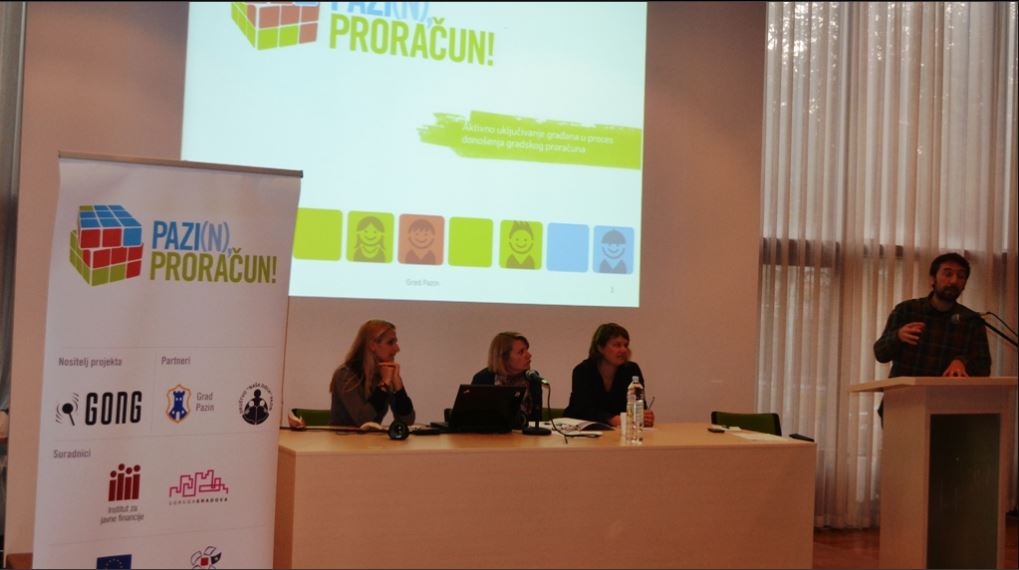Participatory budgeting is and aid to good economy and can restore the trust of citizens in politics. However, although a powerful tool, it is not a magic wand and also hinges on political will. The key prerequisite is for citizens to realize that they can and should take part in political decision making, with the ability to truly impact the decisions that are made. Finally, these decisions must be implemented in order for citizens not to lose trust or interest in further participation. These were the main messages sent out from the Second Conference on Good Economy, organized last week in Zagreb by the Green Network of Activist Groups (ZMAG) and the Cooperative for Good Economy.
Quote the organizers: “a good economy is one that supports the quality of life of the entire community; one that creates a multitude of opportunities and chances to satisfy our needs without jeopardizing others; one that accepts responsibility and fosters solidarity; one that distributes and uses resources fairly; one that respects the sustainability of the eco-system”. One of the guests invited to the Conference was Giovanni Allegretti, professor at the University of Coimbra in Portugal and leading researcher in participatory budgeting, and Isabel Xavier Canning, head of Department for Citizen Participation of the municipality of Cascais, Portugal, as one of the best examples of putting a participatively-made budget to use.
Participatory budgeting is catching on in Croatia
Professor Allegretti, who had held an interactive lecture in Pazin the day before, was enthusiastic about the participatory budgeting process carried out in the Istrian city by GONG, the City Administration and the “Our Children” Association, in cooperation with the Institute of Public Finance and the Association of Cities. Their experiences garnered with GONG’s help will be of use to other cities in Croatia, along with associations Zelena Istra form Pula, Eko Pan from Karlovac and IDEM i ja from Mali Lošinj and Icelandic partners Citizen Foundation. The intent is to enable the citizens of the mentioned cities to get involved in participatory budgeting with the local governments within the next two years.
Allegretti stressed the relationship of budgeting with representative democracy, adding that the process of participatory budgeting is not universal, but rather needs to be tailor-made for every community, ensuring a culture of dialogue and encouraging agreement in order to avoid clientelistic ties. It is therefore important that discussions and decision making processes involve persons who are familiar with the issues, that expenditures are public and transparent and that it has a visible impact reflecting the citizens’ choices. Interestingly, this process often leads citizens to questions on how participate in budget revenues and not just expenditures, with transparency being the major motivator for participation in the process.
Innovations for democracy’s survival and development
“Transparency is not about publishing pages upon pages of data in hopes that someone will be able to read them and understand their meaning, but creating a different way of thinking”, stated Allegretti, adding that “we need to look for constructive solutions, involve as many people as will participate and not just sit around and wait, because continuity is as important as participation and public hearings. That way, people learn to consider various perspectives, while building mutual trust”.
The value and power of participatory budgeting were excellently recognized by citizens of the Portuguese town of Cascais, where every idea is welcome. The proposers do not need to have a specific project in mind and the value is capped at 300.000 Euro. The citizens then vote on proposals, after which they undergo technical evaluation and implementation, lasting anywhere from 24 to 36 months. The process, Xavier Canning mentioned with some pride, is continually improved upon, upgraded and made richer with new experiences.
It is precisely innovation that led citizens of Pazin to get involved through their local committees and in sectoral discussions, encouraged by the overall high level of interest and the enthusiasm of the city administration, Allegretti concluded enthusiastically. Late last year, it was precisely the City of Pazin that won the award for best citizens’ involvement in budgeting for the year 2015, as an example of the best practices of public participation in Croatia.
